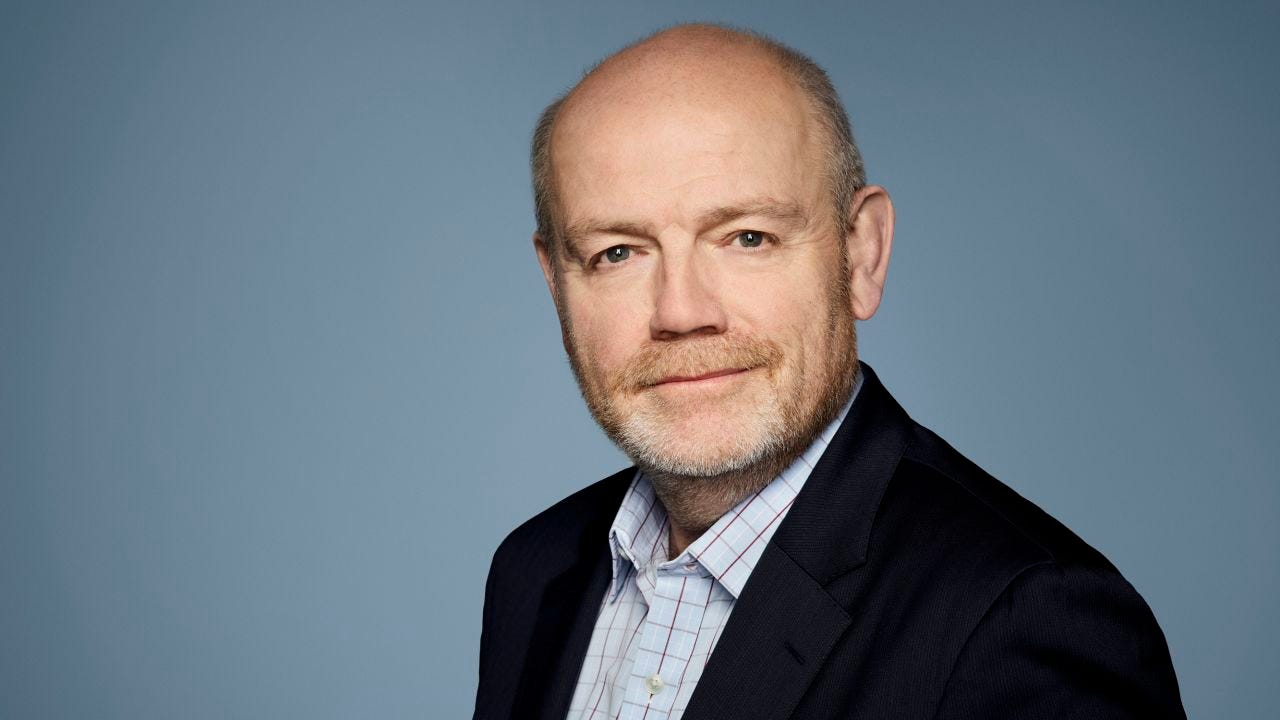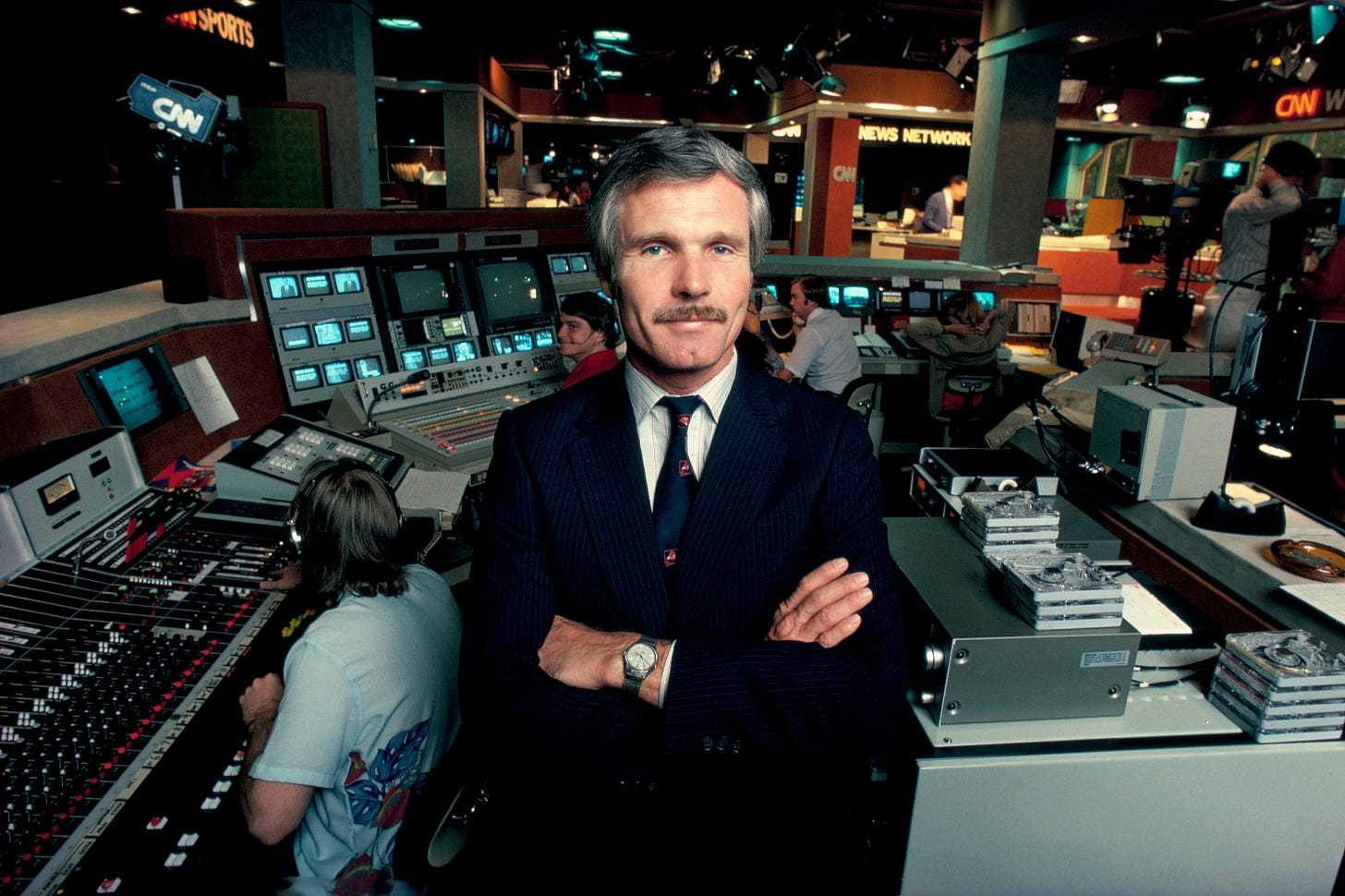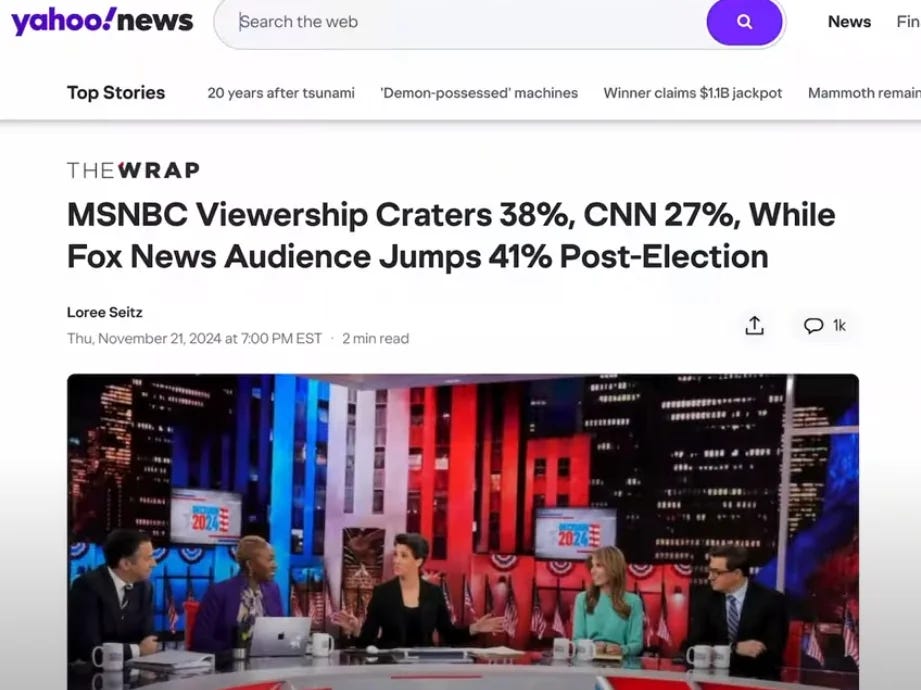Can CNN reinvent itself for the post cable TV era?
As it begins a hard pivot to digital, can the news organization which invented cable TV news move beyond the form?
CNN today begins an overhaul intended to position the worldwide news network for a new media future.
Which inspired a bunch of opinions from me – inspired by longtime observations in covering that channel – that I’m going to offer here.
In today’s media landscape, increasing numbers of people consume their work on a place other than the spot where CNN was built to live: the cable TV channel. That’s why, CNN chairman and CEO Mark Thompson tells the New York Times, CNN must find a way to meaningfully translate what it does to digital platforms.
“This is a moment where the digital story feels like an existential question,” he told the NYT. “If we do not follow the audiences to the new platforms with real conviction and scale, our future prospects will not be good.”
(Mark Thompson, chairman and CEO, CNN Worldwide)
The changes will be significant: 200 jobs eliminated, with a similar number added in digital media roles; a new streaming service; a new subscription product centered on lifestyle programming; Wolf Blitzer moved to Jim Acosta’s 10 a.m. morning perch, amid rumors Acosta – known for his tough questioning of the Trump administration – has been offered a timeslot at midnight, far from the channel’s prime hours.
CNN also announced a bunch of timeslot changes in an internal memo revealed by trade publication The Hollywood Reporter: “The Lead anchor Jake Tapper will move to 5-7 p.m., filling a critical early primetime period for news; Kasie Hunt will host The Arena at 4 p.m.; Audie Cornish will join CNN This Morning at 6 a.m.; Rahel Solomon will host 5 Things at 5 a.m.; and Wolf Blitzer and Pamala (sic) Brown will move to the 10 a.m. timeslot with a new version of The Situation Room.”
After 15 months of wondering what Thompson would do when he came to a company demoralized by the cost-cutting and confused vision of Warner Bros. Discovery, the contours of his hard pivot to digital are finally beginning to emerge.
The question at hand, is whether it will be enough to change an institution so closely aligned with the fading cable TV industry.
As someone who covered media during the decline of newspapers, a lot about this moment feels familiar. Corporate leaders across the country are facing a seismic change in how people consume media – and those changes are unraveling the economic engine which makes the whole company possible. In the newspaper space, lots of people lost jobs and storied brands became a shadow of their former selves, as executives tried and mostly failed to retool print outlets for the age of Amazon and Google.
Now that level of change has come to cable TV. Is it possible to change the first cable newschannel enough that it can find success in a post-cable TV era?
CNN is the ultimate symbol of a platform created for cable television. Launched by mogul Ted Turner in June 1980, the channel came along when consumers were used to consuming TV news at specific periods, when broadcasters put on carefully curated newscasts. The idea of news coverage available whenever the VIEWER wanted to see it – along with saturation coverage of news events less important than the biggest news – seemed impossible and unnecessary.
But CNN, through its coverage of events like the Persian Gulf War and the explosion of the space shuttle Challenger, proved what has been obvious for decades now; viewers will show up regularly for a newschannel, if it covers stories they find interesting.
CNN’s biggest problem has been its roots as a just-the-facts news service. As Fox News developed a bigger and more loyal audience with programming centered on cheaper punditry, it also developed shows audience always found interesting, even when the news was not. Fox News also developed an identity that resonated with fans and encouraged them to watch the channel for long stretches, putting it on in the background on TVs in their home as a sort of wallpaper, which constantly encouraged them to bond with their channel and see the world the way they saw it.
Jeff Zucker, who served as president of CNN Worldwide from 2013 to 2021, seemed to focus CNN’s U.S. channel on a smaller range of stories each day, while amping up coverage – and criticism – of Donald Trump’s candidacy and eventually his first presidential administration. Subsequent attempts by Warner Bros Discovery to tamp down the criticism of Trump and appear more centrist, have mostly seemed to alienate the audience they drew during Zucker’s time, without drawing new people.
So now, Thompson faces the tough task of moving CNN’s focus more aggressively toward digital products which might make up the revenue and audience they’re losing as the cable TV industry declines. Thompson has a reputation for handling these challenges well: Before coming to CNN, he was a top executive at the New York Times and the BBC during transformative periods.
But this may be his biggest challenge yet: Taking a cable TV newschannel long seen as the symbol of 24-hour cable news and transforming it into something new.
Observers like me – who have seen how hard it is to revamp old media companies for new media times – are watching with a guarded hope and genuine concern.








"Genuine concern" is well warranted. Founder Ted Turner famously said of CNN that "the news is the star," but at today's CNN the news rarely shines, and far more time is spent talking about—or yelling about—the news than actually reporting it. And that is a shame, given the collision of increasingly vexing crises and declining literacy about those very crises among the general public. Add to this CNN's challenge of maintaining the power and integrity of its journalism in digital platforms that reward conflict or craziness—and cats!—over informative, in-depth reporting. Finally, since CNN is a commercial, profit-making enterprise, it is prone to err on the side of the content that will get the most eyeballs rather than the more difficult task of figuring out how to make the news most critical for us to know something more of us will devote our eyeballs to. As you said, "genuine concern" this will come together as it should for the sake of our nation and world.